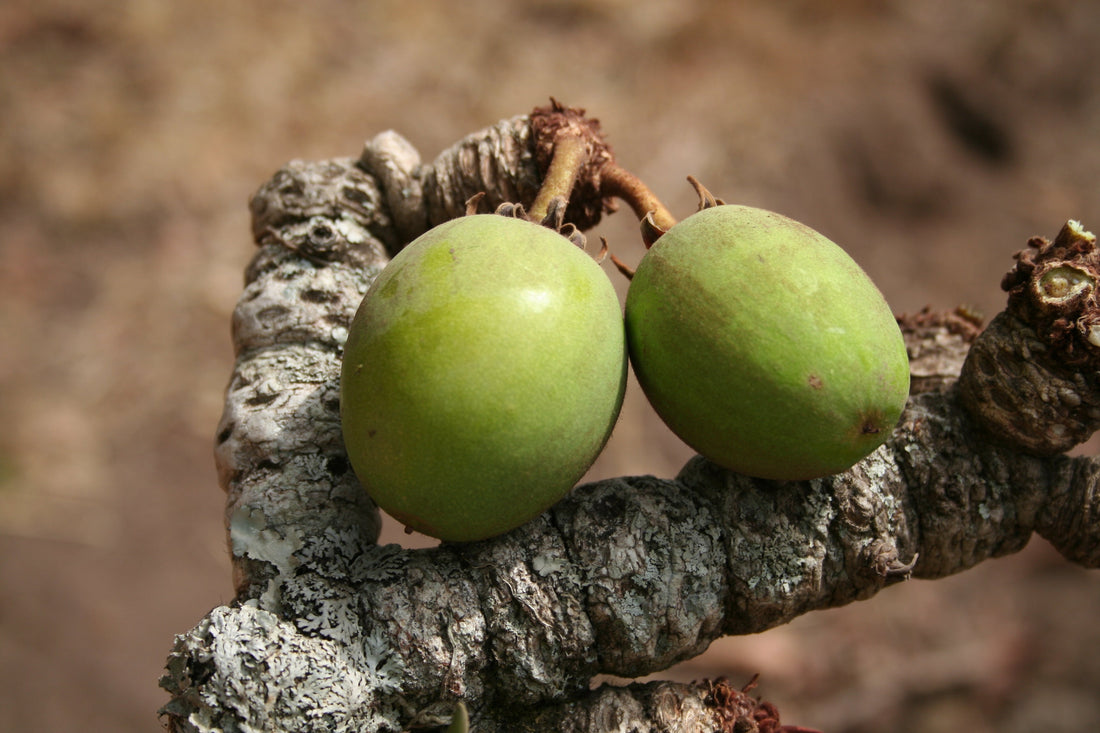
The Power of Unrefined African Shea Butter
Share
Where it Comes From & How it's Made
Unrefined African Shea Butter is a natural fat extracted from the nuts of the shea tree (Vitellaria paradoxa), which is native to the dry savannah belt of West and East Africa. The tree is so vital to local communities that it's often referred to as "women's gold," as women are primarily responsible for the traditional, hands-on production process.
The process of making unrefined shea butter is an ancient craft. It typically involves:
-
Harvesting: Shea nuts are collected by hand after they fall from the trees.
-
Crushing & Roasting: The nuts are cracked, and the kernels inside are crushed and roasted to a rich, brown colour.
-
Grinding: The roasted kernels are ground into a paste.
-
Kneading: The paste is meticulously kneaded by hand to separate the oils. Water is added, causing the fat to rise to the top.
-
Boiling & Filtering: The floating butter is skimmed off, boiled to remove impurities, and then filtered.
-
Cooling: The purified liquid is left to cool and solidify into the creamy, ivory-coloured butter we know.
This traditional method ensures that the butter retains its maximum nutrient content, unlike the refined version, which loses many of its natural properties during chemical processing.
Benefits & Uses for Skin Health
Unrefined shea butter is a skincare powerhouse, thanks to its rich composition of fatty acids, vitamins, and antioxidants.
-
Intense Moisturization: It's an exceptional emollient that deeply nourishes and softens dry, rough skin. Its fatty acid profile is similar to the skin’s natural sebum, allowing it to penetrate and lock in moisture effectively.
-
Anti-Inflammatory & Soothing: The presence of cinnamic acid and other compounds gives it potent anti-inflammatory properties, which can help calm redness, reduce irritation, and soothe skin conditions like eczema and psoriasis.
-
Anti-Aging & Collagen Support: Packed with vitamins A and E, it acts as a natural antioxidant, protecting the skin from damaging free radicals. It can also help support collagen production, improving skin elasticity and reducing the appearance of fine lines and wrinkles.
-
Wound Healing & Scar Reduction: Its regenerative properties aid in the skin’s natural healing process, making it a great natural remedy for minor cuts, burns, and to help minimize the appearance of scars and stretch marks.
-
Non-Comedogenic for Most: While it is a rich butter, it is generally considered non-comedogenic, meaning it won't clog pores, making it suitable for many skin types, including acne-prone skin.
Key Studies & Research
Scientific research supports many of the traditional uses and benefits of unrefined shea butter.
-
A study published in the Journal of Oleo Science highlights the anti-inflammatory and anti-tumour promoting compounds found in shea nuts and shea fat.
-
Another study noted that topical application of shea butter demonstrated both anti-aging and anti-inflammatory properties, suggesting it can protect against environmental stressors and improve skin health.
-
Research has also explored its potential in wound care, with some findings suggesting that it may be effective in helping prevent the formation of keloid scars due to its emollient properties.
Sources:
Anti-inflammatory and Anti-tumour Compounds
-
Journal: Journal of Oleo Science
-
Study: "Anti-Inflammatory and Chemopreventive Effects of Triterpene Cinnamates and Acetates from Shea Fat"
Anti-aging and Anti-inflammatory Properties
-
Journal: American Journal of Life Sciences
-
Study: "Effects of Topical and Dietary Use of Shea Butter on Animals"
Keloid Scar Prevention
While a direct study in the journal Wounds was not found, a review on the benefits of shea butter from the National Centre for Biotechnology Information (NCBI) confirms that it can help reduce the formation of keloid tissue.
